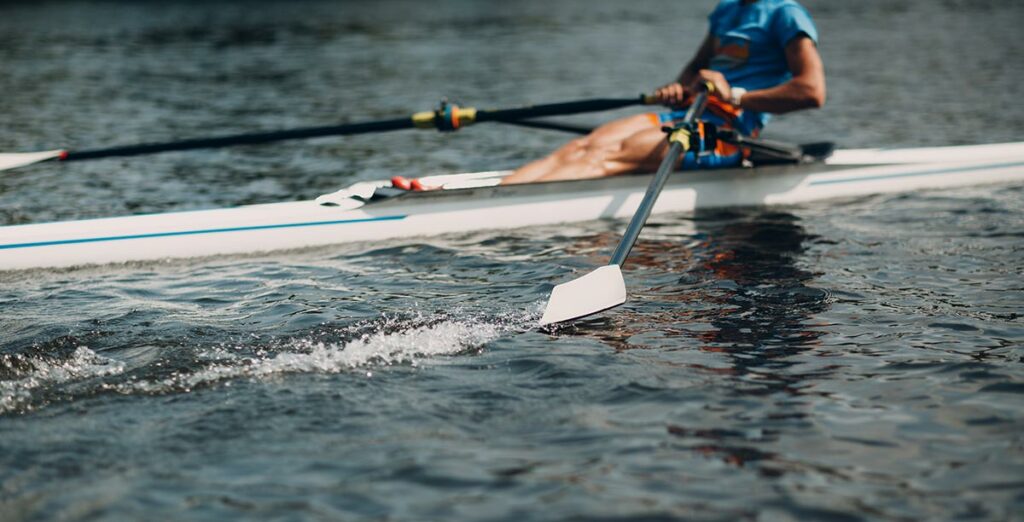Hello, I’m Guy Monseair, Head Coach of City Island Rowing, and today I want to delve into a topic that is often overlooked and yet crucial in the world of competitive sports—building resilience and mental toughness in athletes. In rowing, as in many other sports, the mental challenges are often as demanding as the physical ones. Here’s how we, as coaches, can equip our athletes with the fortitude they need to thrive both on the water and in life.
The Foundation of Resilience
Resilience is the grit and determination that athletes muster when faced with setbacks, challenging conditions, or fierce competition. It’s about more than enduring; it’s about thriving under pressure and bouncing back from failures stronger than before. In rowing, where races can be won or lost by fractions of a second, mental toughness – especially in the middle of the race – can be the determining factor.
Creating a Supportive Environment
One of the first steps in fostering mental toughness is cultivating a supportive team environment. This doesn’t mean coddling athletes; rather, it involves creating a culture where every team member feels valued and supported. We celebrate each other’s successes and, more importantly, encourage each other through failures. This approach helps to build a sense of security and belonging, which is crucial for athletes to feel confident in taking risks and pushing their limits. In the middle of a race, when the athletes’ bodies are enduring extraordinary discomfort and begging for relief, athletes fight on for their teammates, more than they fight on for themselves. The greater their sense of belonging to something greater than just themselves, the more discomfort they are willing to endure. As we say at City Island Rowing, “You are racing for the girls in front and behind you”.
Challenging Yet Achievable Goals
Setting goals is fundamental in any training regimen, but the key is to ensure these goals are both challenging and achievable. This balance helps prevent frustration and burnout. As a coach, I work closely with each athlete to set personalized goals that are tailored to their unique abilities and aspirations. These goals often stretch the athletes to reach new heights but are always within their reach with effort and dedication. This process teaches resilience by reinforcing the idea that obstacles can be overcome with persistence and hard work. These targets are dynamic and constantly revised. Once an athlete hits a goal, there is acknowledgement and congratulations but then a new goal, a new challenge is set in a process we call “the relentless pursuit of perfection”. Every time an athlete accomplishes a challenge, they build confidence, and therefore take on the next challenge with even greater mental fortitude and conviction.
Emphasizing Process Over Outcomes
In our training at City Island Rowing, we emphasize the importance of focusing on the process, not just the outcomes. While winning is wonderful, it’s the dedication to daily improvements that builds lasting success. I encourage our athletes to focus on what they can control—their technique, their conditioning, and their effort—rather than the uncontrollable elements like weather, the competition, or even the final result of a race. Training strategies, race strategies must be consistent in order for us to learn and grow. We need to be able to improve our shortcomings, and lean into our strengths. Having a program-wide methodology allows athletes to progress in a predictable way, in what we refer to as “trusting the process”. It’s important that athletes do not get too wrapped up in a disappointing erg piece or one disappointing race. We need to take a step back and look at the bigger, long term picture and see that we are still on a positive trajectory. This mindset helps athletes build resilience by understanding that their value and self-worth are not tied to individual moments, but to the effort and heart they bring to every practice and every race, and with that success will surely follow.
Stress Management Techniques
Rowing, training and racing, is incredibly mentally taxing. Teaching athletes effective stress management techniques is critical for developing overall mental toughness. We incorporate breathing exercises, mindfulness practices, and visualization techniques into our training. We also like to include some fun activities every now and again, so that practice sessions are not always just about work. This allows athletes to come to practice excited and enthusiastic, knowing full well that while the session will be demanding, they are also going to enjoy their time. At regattas we are known to have music playing at the trailer, often with our athletes singing along and having an impromptu dance party. This not only reinforces a sense of team community, but takes their mind off worrying about their upcoming races. These tools not only help athletes manage race-day nerves but also serve them well in everyday life, preparing them to handle stress and anxiety in various situations.
Learning from Every Stroke
Every stroke in rowing offers a lesson, and every practice or race provides a wealth of data to improve future performance. We encourage our athletes to analyze their performance critically—not to be self-critical, but to learn and adapt. This continuous loop of performance, feedback, and improvement is central to building resilience. It is an incredibly valuable life skill to learn that critical feedback (given or self realized) is not a focus on weakness, but an opportunity for growth.
Community and Connection
Finally, fostering a strong sense of community and connection among the team members is vital. In rowing, the boat moves as one. This interdependence means that trust and mutual respect are paramount. At City Island Rowing, we spend time building these bonds through team activities that are not always related to rowing. These connections create a resilient team that supports each individual during challenging times, enhancing the mental toughness of each rower.
Conclusion
Building resilience in athletes is a multifaceted endeavor that requires patience, persistence, and a deep understanding of each athlete’s psychological landscape. As coaches, our role extends beyond teaching technique or conducting physical workouts; we are also mentors, guiding our athletes through the mental and emotional challenges of sports. By fostering a supportive environment, setting appropriate goals, focusing on the process, teaching stress management, encouraging continuous learning, and strengthening community bonds, we can help our athletes develop the mental toughness that will serve them well beyond their rowing careers.


